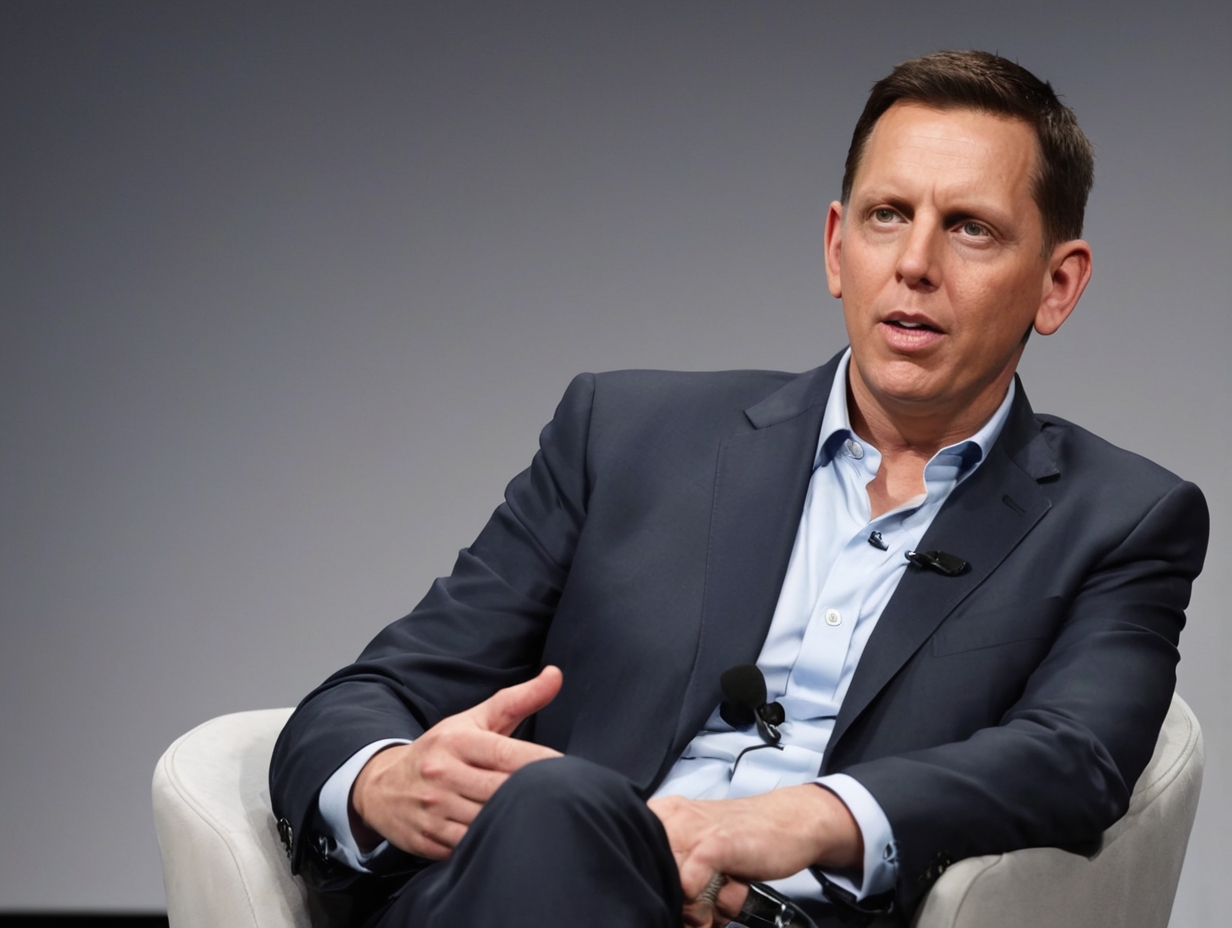Peter Thiel, co-founder of PayPal and one of the big people in the tech field, has now raised concerns because of his last remarks emphasizing the effect that artificial intelligence (AI) may have on varied skill sets. Thiel sees mathematicians as facing the biggest obstacle from AI, which does not pose a similar challenge to people well-versed in languages and writing.
Thiel’s Views on Artificial Intelligence Players
Thiel who is also critical of AI progress comes in the face of mounting societal questions of the long-term effects of AI technologies. Thiel is probably the best match for AI regulation because he is also deeply involved in projects like Palantir, which provides AI technologies to various sectors, including defense, and therefore knows both the benefits and risks of ai in practice.
The advent of AI, as we have seen largely through Open AI’s ChatGPT, has caused an outcry on changes the field will bring about to the job market. Thiel warns about the possibility of lesser employment for mathematical science practitioners as advanced AI agents begin to excel at solutions to almost all complex mathematical problems thus outclassing the abilities of humans.
Math as a benchmark of competency
The fact, that Thiel’s opinion goes against the prevalent belief that math is a sign of an intellectual genius, is a considerable factor. He argues that an overzealous obsession by society towards obtaining mathematical perfection is likely to lead to undesired consequences, especially due to AI technologies that increasingly overlap between the abilities of humans and machines.
Similarly, Thiel notes about the consequences of bias not only in favor of those with math skills but also to those in the settings that all might be non-AI competent. Although math has been taken conventional need during selection, Thiel cautions against depending on this metric excessively in evaluating the extent of human capability.
Socio-economic implications for education involve the transition from a formal education system to a system based on personal growth and experiences.
Navigating AI’s impact on education and equity
The comments by Thiel provoke contemplation on the ever-changing nature of education and skills in the technologically disruptive context of reality. AI’s advancement across industries and job requirements will force policymakers to take a step forward to suggest inclusive and opportunities instruments for all skill sets.
Thiel’s comments are a strong reminder of the need to view in various ways AI’s effects on social order and civilization. There is no question that AI is going to be a game changer as far as innovation and efficiency are concerned but it also brings in some query regarding equity, rights, and working conditions of people in this fast-changing world.
In the current situation when AI is developing, the questions about the role of certain professions are unsolved. Peter Thiel’s view concerning AI’s effect on math and language skills makes a platform for broader discussions about the future employment, educational systems, and manners of society in the era of automation. This practice must be considered by not only stakeholders but also by setting mutual understandings and developing action plans for achieving that epoch.
This article originally appeared in Hindustan Times





